More and more governments are betting on the so-called green hydrogen as an energy alternative to get out of the crisis in a more sustainable way. An energy vector that will receive billions of dollars from governments, which is a solution for applications such as heavy transport for many. But according to a report from the Eindhoven Technical University, battery-electric models will prevail thanks to their higher efficiency and lower operating cost.
This report has been written by Auke Hoekstra, a researcher at the Eindhoven University of Technology, who has indicated that trucks equipped with hydrogen fuel cells or that use synthetic fuels will never compete commercially with battery-electric trucks.
One of the main workhorses of those who do not bet on battery trucks is autonomy. Longer and more complex routes are usually given as an example. But according to the data, the reality today is different.
The study conducted by this researcher has revealed that 80% of trucks, even larger trucks, travel a maximum of 466 miles per day, while a large number must complete much shorter distances. In this sector, if you want to travel more miles, costs skyrocket with overtime elements. This means that as a general rule, a driver is not made to travel more than 466 miles per day.
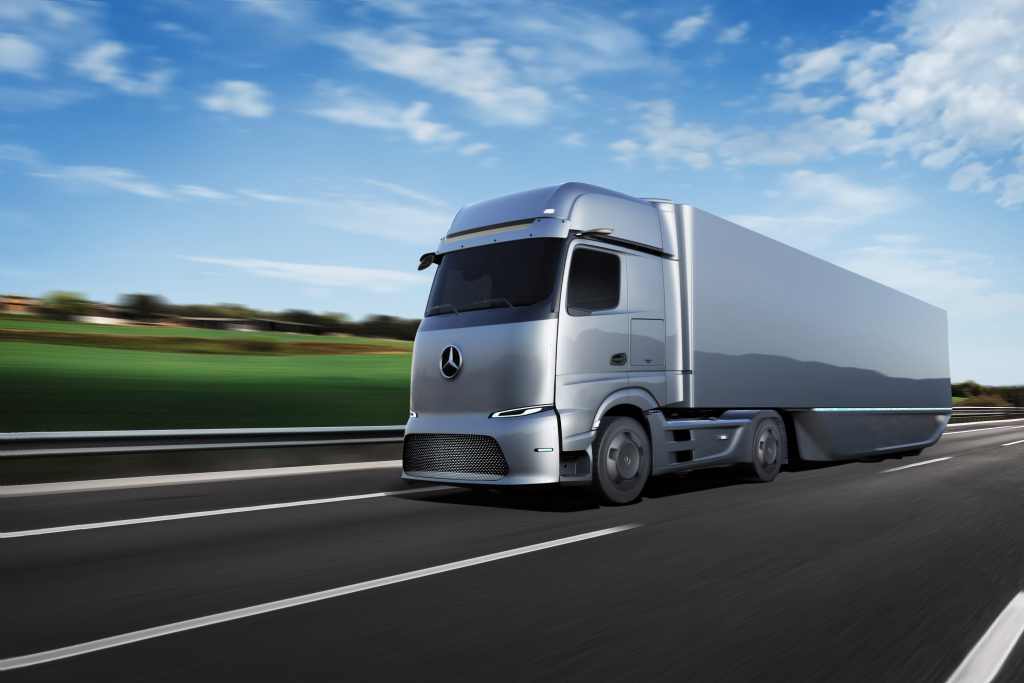
Another aspect is the changes in the way trucks move in recent decades. At present, most of the vehicles must return each day to their base. Fewer and fewer have to spend days away from home.
In Dutch truckers, a large number of transport goods from the port of Rotterdam to the German town of Venlo, where they reload and return to their base. It is a journey of between 155 and 218 miles that many truckers do every day but always end at the base.
This allows operators to complete partial charges during the day and a complete one at night at their resting place. A fast charger of between 50 and 75 kW would await them, which is becoming increasingly economical.
Weight Reduction Due to Batteries
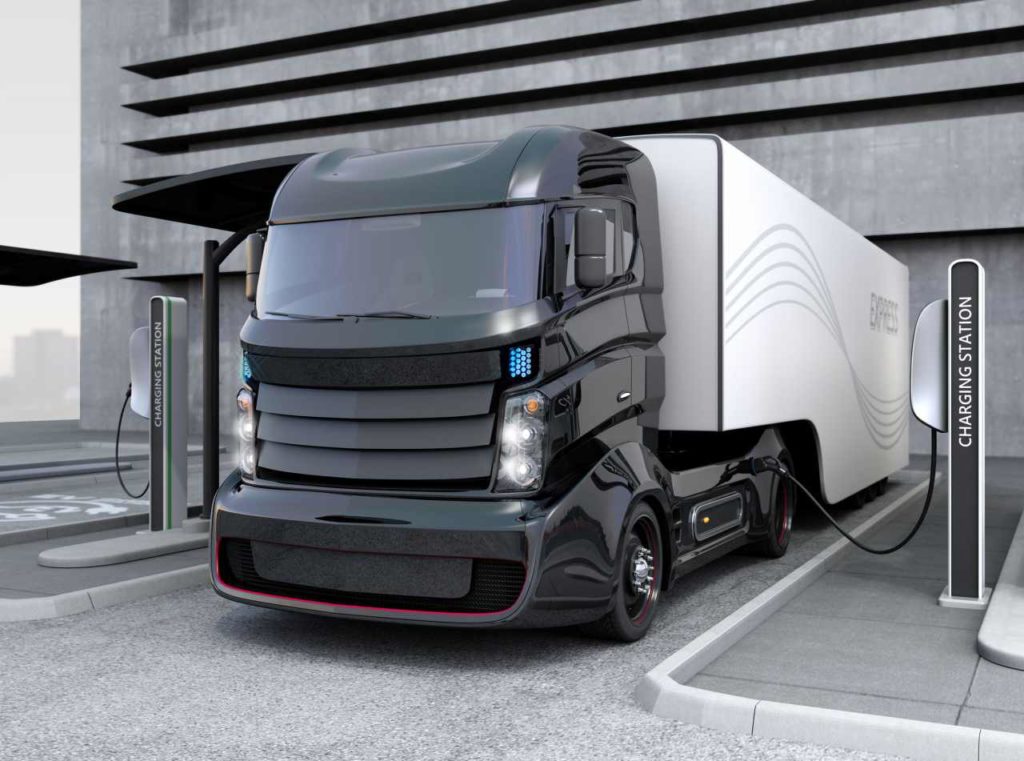
One of the main problems today is the weight. Adding large amounts of batteries weighs down the vehicle. But the evolution of these components does not stop, and they are becoming lighter and more capable. It could be added that with the design of specific platforms to house electrical systems, the replacement of the combustion system by an electrical one could be compensated. According to the study, something that could result in a reduction of up to 3,000 kilos in the final design compared to a diesel model.
Something that leads the study to predict that within five years, the market will have trucks of 40 tons and 497 miles of autonomy, which also thanks to the more efficient design of its body, housing, for example, the electric motors next to the wheels will even allow increasing the load capacity compared to conventional trucks.
Catenaries
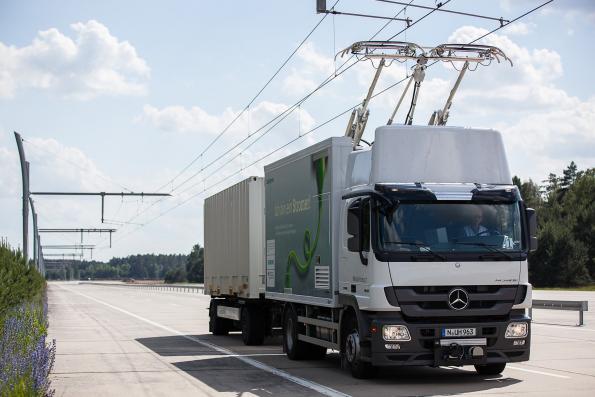
One of the solutions tested in some markets to extend electric trucks’ autonomy is the traditional catenaries. But this study does not see much potential in its use due to problems such as the high cost of installation, which will mean that it cannot be developed on a large scale, which will, in turn, impede its commercial take-off—the classic problem of the whiting that bites its tail.
An alternative that can find its space in specific applications, such as port entrances, where trucks usually have to queue to access the loading areas, in a process where they could take advantage to charge their batteries and thus be able to develop trucks with smaller and therefore cheaper batteries.
Hydrogen: Problem, Efficiency
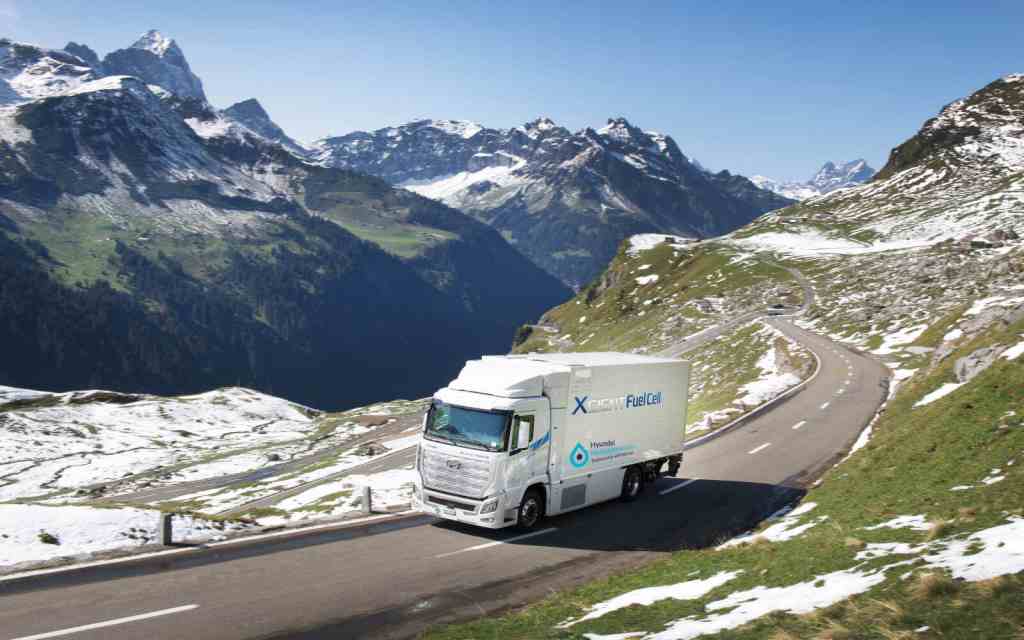
Cost differences between battery-powered and hydrogen fuel cell trucks could narrow and shift in favor of the latter if the technology reaches a high commercial development level. But even then, it could be ahead of the purchase price. But the operating cost would be much higher. And that in industrial applications, like heavy transport, means a lot of money.
The fundamental problem is that to produce hydrogen; we must use electricity and lose at least half of the energy in the process. Therefore, we will need twice as much electricity to power a hydrogen truck as a battery one.
According to the report, for many, the answer lies in hydrogen production from renewable sources. The famous “green hydrogen.” But even in the most romantic scenarios, such as producing hydrogen using solar energy in countries like Morocco and importing it through pipelines, it might not be enough to become more competitive in operating costs than a battery.
The Design of the Semi-Trailers
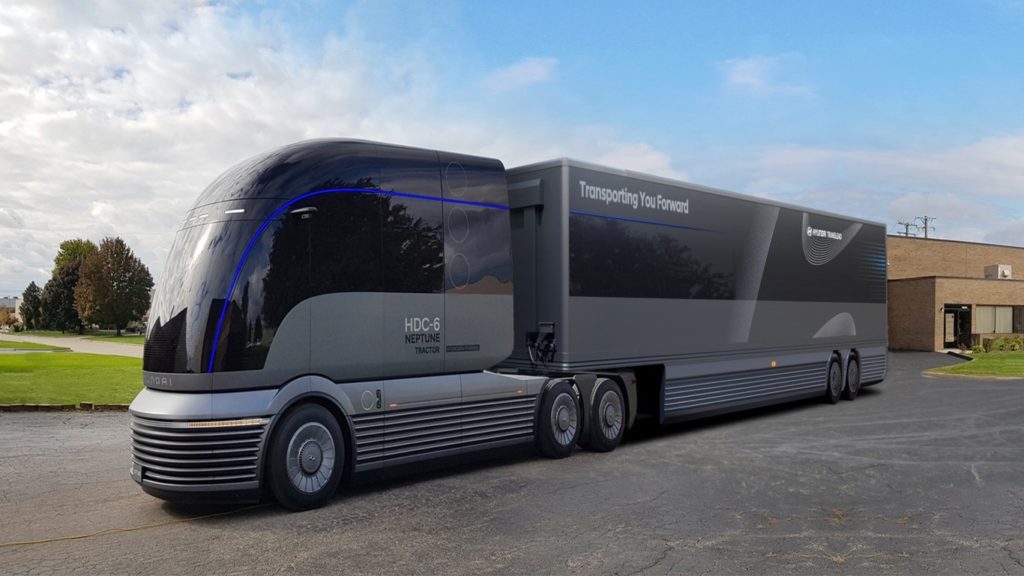
Within the section of challenges to be overcome by hydrogen, there is the question of semi-trailers’ design. With a hydrogen system, taking into account that the truck can change trailers, this will mean that the hydrogen system will have to be installed in its entirety in the tractor unit, from engines to hydrogen tanks.
This will mean that to meet the autonomy and power objectives, the truck’s design will have to be modified, either by losing space in the loading area or through a change in European legislation in terms of dimensions. Legislative changes often take years to complete.
The report concludes that although using hydrogen for transport can be a good alternative for decarbonization if it is produced with renewable energies, the main problem that this study exposes is that for companies, the operating cost will be much higher than betting on a battery powered system. Something that will mean a much higher energy bill for companies that bet on hydrogen.
Of course, those that do it for battery-powered models will also face challenges to overcome, and mainly related to the charging infrastructure. A technology already developed and increasingly economical, which will not have significant problems in being installed on a massive scale in the coming years and where we see projects such as the one launched more than a year ago by the American manufacturer Chargepoint, which proposed 2 MW chargers, capable of offering a recharge of 746 miles in 30 minutes.
A sector, the truck manufacturers, which they describe as very conservative and that needs the push like the one that Tesla has given to the automotive industry at the time, and that could be repeated with the arrival of the Tesla Semi, which will become the practical example that it is possible to put long-range battery-electric trucks on the road.

